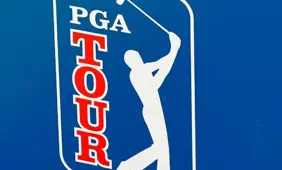Pennsylvania Casinos Claim Slot Machine Tax Unconstitutional amid Skill Games Dispute
In a new skill games-linked legal challenge, the owners of 12 out of 17 Pennsylvania casinos have initiated a lawsuit against the state, arguing that the current tax regime on slot machine revenues is unconstitutional. The result could be a halt to tax payments on revenue if the dispute isn't settled quickly and favorably for the casino operators.

This legal action, which was filed on July 29, has brought to light a significant disparity in the state's taxation policy. While casinos are obliged to pay a substantial 54% tax on their slot machine earnings, the same is not required from the burgeoning industry of skill game terminals, commonly found in various bars and retail establishments across the state.
Related: Pennsylvania Casinos Begin Supreme Court Battle over Skill GamesThe crux of the casino owners' argument lies in the constitutional principle that mandates uniformity in taxation. They assert that the preferential treatment afforded to skill game terminals, which are not subject to the same tax burden, infringes upon this principle.
This issue has escalated to the point where it now threatens over $1 billion in annual tax revenue. That money is a critical source of funding for property tax rebates and economic development initiatives within Pennsylvania.
As the debate intensifies, the Pennsylvania Supreme Court has been tasked with determining the legal status of these skill games. Despite the urgency and financial implications of the matter, the court has not yet scheduled a hearing for the case. This delay has only added to the uncertainty surrounding the future of both the skill games and the tax revenues they could potentially generate.
More Business News
Unraveling the Skill Games Mystery
Previously, a lower court ruling had differentiated between skill games and traditional gambling devices such as slot machines. The ruling stated that the outcomes of the Pace-O-Matic skill games were predominantly determined by the player's skill rather than chance, which is the defining characteristic of regulated gambling activities. This distinction is pivotal, as it could influence the court's decision on whether the skill games should be subjected to the same regulatory and tax framework as slot machines.
The outcome of this legal dispute holds significant implications for the state's fiscal structure and the gaming industry at large. Casino owners are standing firm on their stance, emphasizing the need for equitable taxation across all gaming platforms.
As the case progresses, it will undoubtedly set a precedent for how similar situations are handled in the future, not just in Pennsylvania but potentially in other jurisdictions as well. Kentucky, Virginia and other states have also faced issues trying to define skill games, and Pennsylvania might alter the stage in all of them.
RELATED TOPICS: Business
Most Read
Must Read
 Interviews
Interviews
Sweepstakes Casinos: Thriving in an Ever-Changing Industry – Interview with Attorney Stephen C. Piepgrass
Feb 17, 2025 Interviews
Interviews







Review this New Post
Leave a Comment
User Comments
Comments for Pennsylvania Casinos Claim Slot Machine Tax Unconstitutional amid Skill Games Dispute